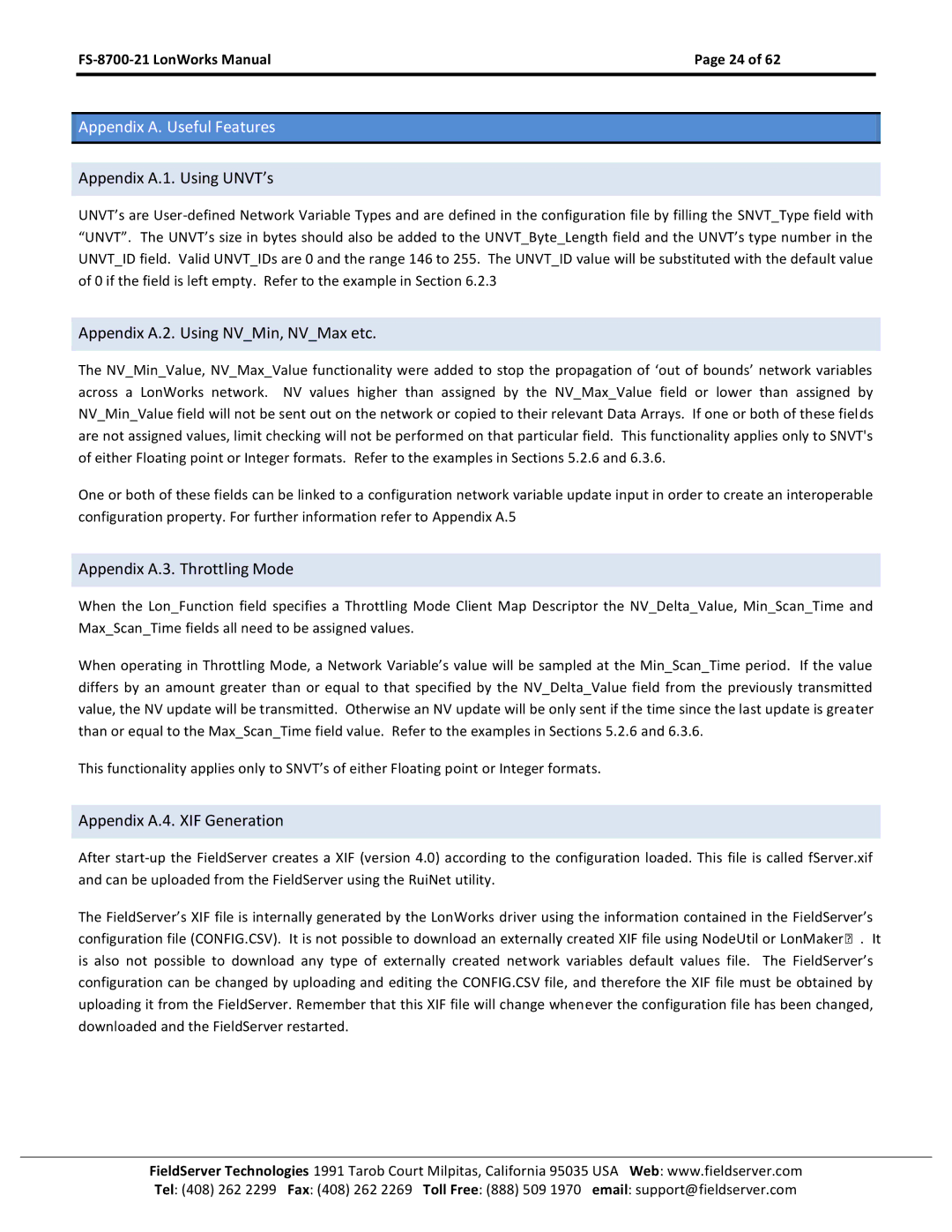
Page 24 of 62 | |
|
|
Appendix A. Useful Features
Appendix A.1. Using UNVT’s
UNVT’s are
Appendix A.2. Using NV_Min, NV_Max etc.
The NV_Min_Value, NV_Max_Value functionality were added to stop the propagation of ‘out of bounds’ network variables across a LonWorks network. NV values higher than assigned by the NV_Max_Value field or lower than assigned by NV_Min_Value field will not be sent out on the network or copied to their relevant Data Arrays. If one or both of these fields are not assigned values, limit checking will not be performed on that particular field. This functionality applies only to SNVT's of either Floating point or Integer formats. Refer to the examples in Sections 5.2.6 and 6.3.6.
One or both of these fields can be linked to a configuration network variable update input in order to create an interoperable configuration property. For further information refer to Appendix A.5
Appendix A.3. Throttling Mode
When the Lon_Function field specifies a Throttling Mode Client Map Descriptor the NV_Delta_Value, Min_Scan_Time and Max_Scan_Time fields all need to be assigned values.
When operating in Throttling Mode, a Network Variable’s value will be sampled at the Min_Scan_Time period. If the value differs by an amount greater than or equal to that specified by the NV_Delta_Value field from the previously transmitted value, the NV update will be transmitted. Otherwise an NV update will be only sent if the time since the last update is greater than or equal to the Max_Scan_Time field value. Refer to the examples in Sections 5.2.6 and 6.3.6.
This functionality applies only to SNVT’s of either Floating point or Integer formats.
Appendix A.4. XIF Generation
After
The FieldServer’s XIF file is internally generated by the LonWorks driver using the information contained in the FieldServer’s configuration file (CONFIG.CSV). It is not possible to download an externally created XIF file using NodeUtil or LonMaker. It is also not possible to download any type of externally created network variables default values file. The FieldServer’s configuration can be changed by uploading and editing the CONFIG.CSV file, and therefore the XIF file must be obtained by uploading it from the FieldServer. Remember that this XIF file will change whenever the configuration file has been changed, downloaded and the FieldServer restarted.
FieldServer Technologies 1991 Tarob Court Milpitas, California 95035 USA Web: www.fieldserver.com Tel: (408) 262 2299 Fax: (408) 262 2269 Toll Free: (888) 509 1970 email: support@fieldserver.com
